Related Research Articles

Prohibition is the act or practice of forbidding something by law; more particularly the term refers to the banning of the manufacture, storage, transportation, sale, possession, and consumption of alcoholic beverages. The word is also used to refer to a period of time during which such bans are enforced.

The temperance movement is a social movement promoting temperance or complete abstinence from consumption of alcoholic beverages. Participants in the movement typically criticize alcohol intoxication or promote teetotalism, and its leaders emphasize alcohol's negative effects on people's health, personalities and family lives. Typically the movement promotes alcohol education and it also demands the passage of new laws against the sale of alcohol, either regulations on the availability of alcohol, or the complete prohibition of it.
The Woman's Christian Temperance Union (WCTU) is an international temperance organization. It was among the first organizations of women devoted to social reform with a program that "linked the religious and the secular through concerted and far-reaching reform strategies based on applied Christianity." It plays an influential role in the temperance movement. Originating among women in the United States Prohibition movement, the organization supported the 18th Amendment and was also influential in social reform issues that came to prominence in the progressive era.
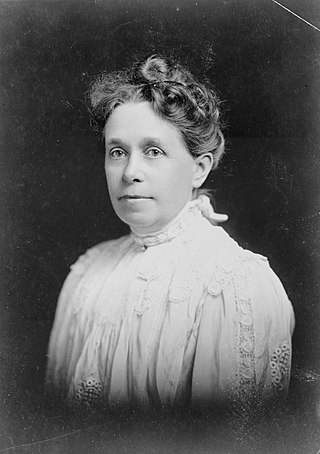
Anna Adams Gordon (1853–1931) was an American social reformer, songwriter, and, as national president of the Woman's Christian Temperance Union when the Eighteenth Amendment was adopted, a major figure in the Temperance movement.

Mary Greenleaf Leavitt was an educator and successful orator who became the first round-the-world missionary for the Woman's Christian Temperance Union (WCTU). Setting out on virtually non-stop worldwide tours over a decade, she "went to all continents save Antarctica," where she crusaded against alcohol and its evils including domestic violence; and advocated for women's suffrage and other equal rights such as higher education for women. In 1891 she became the honorary life president of the World's WCTU.

Alcohol is prohibited in the states of Bihar, Gujarat, Mizoram, and Nagaland. All other Indian states and union territories permit the sale of alcohol.
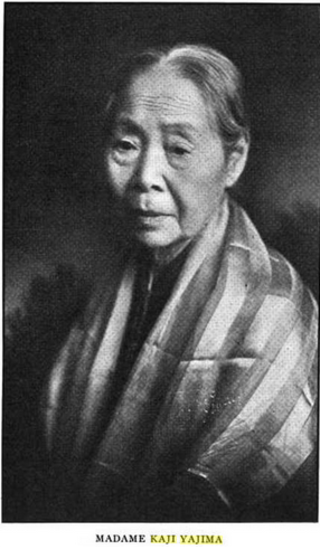
Yajima Kajiko was the founder of the Women's Reform Society and president of Japan's Woman's Christian Temperance Union. An educator, pacifist, and Christian activist, she vigorously advanced the cause for the education of women in Japan. Her name was usually seen as Kaji Yajima in the American press of her day.
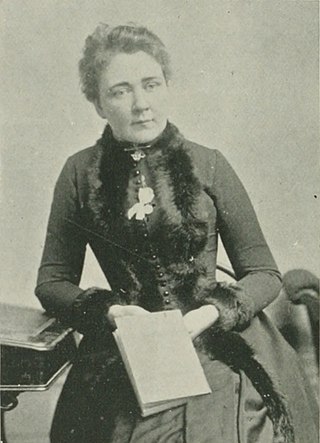
Jessie Ackermann was a social reformer, feminist, journalist, writer and traveller. She was the second round-the-world missionary appointed by the World's Woman's Christian Temperance Union (WWCTU), becoming in 1891 the inaugural president of the federated Australasian Woman's Christian Temperance Union (WCTU), Australia's largest women's reform group. Although an American, Ackermann is considered a major voice in the Australian suffrage movement.

In the United States, the temperance movement, which sought to curb the consumption of alcohol, had a large influence on American politics and American society in the nineteenth and twentieth centuries, culminating in the prohibition of alcohol, through the Eighteenth Amendment to the United States Constitution, from 1920 to 1933. Today, there are organizations that continue to promote the cause of temperance.
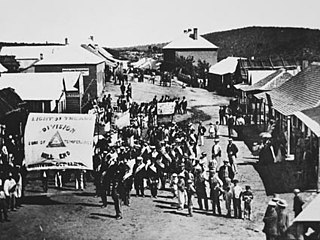
The temperance movement has been active in Australia. As with the movement internationally, in Australia it has sought to curb the drinking of alcohol. The temperance movement had some success in the early twentieth century, although from the Second World War its influence declined. Nevertheless, temperance organisations remain active today.

The temperance movement in New Zealand originated as a social movement in the late-19th century. In general, the temperance movement aims at curbing the consumption of alcohol. Although it met with local success, it narrowly failed to impose national prohibition on a number of occasions in the early-20th century. Temperance organisations remain active in New Zealand today.

The Woman's Christian Temperance Union Administration Building is a historic building in Evanston, Illinois, United States. It has served as the publishing house and national headquarters of the Woman's Christian Temperance Union since its construction in 1910. The organization had an important role in the national discussion on prohibition and women's suffrage.

Margaret Eleanor Parker (1827–1896) was a British social activist, social reformer, and travel writer who was involved in the temperance movement. She was a founding member of the British Women's Temperance Association (BWTA) in 1876, and served as its first president. Born in England, Parker resided in Scotland. She was a delegate to the 1876 International Organisation of Good Templars (IOGT) meeting which led to the formation of the BWTA. She was also instrumental in founding the World Woman's Christian Temperance Union (WWCTU). In 1881, she founded another type of women's association, one which focused on horticulture and supply, but it did not flourish. Parker described her travels in the Eastern United States in Six Happy Months amongst the Americans (1874).

Katharine Lent Stevenson was an American temperance reformer, missionary, and editor. She was a successful platform speaker, writer, and officer of the World Woman's Christian Temperance Union (WWCTU) on whose behalf she also visited Japan, China, India, Australia and other countries as a missionary. She also served as president of the Massachusetts WCTU in 1898.

Mary Elizabeth Harris Armor was an American temperance leader. She was the Georgia state president of the Woman's Christian Temperance Union (WCTU) and is often credited for the passing of prohibition legislature in Georgia.
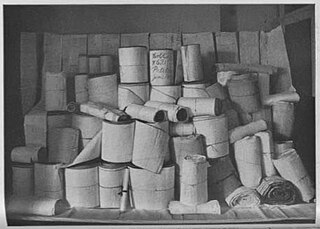
The Polyglot Petition for Home Protection was the first world-wide proclamation against the manufacturing and international trade in liquor and drugs as well as the prohibition of legalised vice. It served as a first major campaign to raise public awareness of the need for international agreements on controls for opium and its derivatives.

Women's Christian Temperance Union of New Zealand is a non-partisan, non-denominational, and non-profit organisation that is the oldest continuously active national organisation of women in New Zealand. The national organisation began in 1885 during the visit to New Zealand by Mary Clement Leavitt, the first world missionary for the Woman's Christian Temperance Union. The WCTU NZ was an early branch of the World Woman's Christian Temperance Union and a founding affiliate of the National Council of Women of New Zealand. Men may join the WCTU NZ as honorary members.
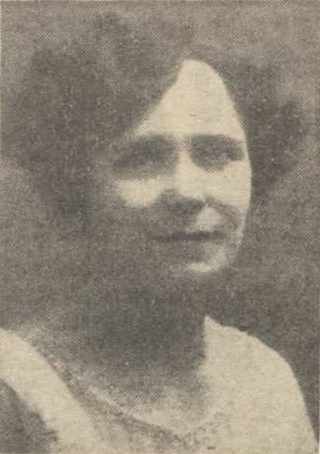
Isabella McCorkindale (1885–1971), known as Isabel McCorkindale, was a Scottish-born Australian temperance, women's suffrage and women's rights activist. She was a leader in both the Women's Christian Temperance Union of Australasia (WCTUA) and the World Women's Christian Temperance Union (WWCTU). As director of scientific temperance education for the WCTUA, she spent more than 40 years working to educate young people about the health and social consequences of alcohol abuse. She was international president of WWCTU from 1959 to 1962, after serving as vice-president from 1947 to 1959. She then served as national president for the Australian WCTU from 1963 to 1966. In 1961, she was appointed a Member of the Order of the British Empire for her work.

Rachel Don was an accredited Methodist local preacher who became a local and national leader in the Women's Christian Temperance Union New Zealand, serving as president from 1914 to 1926. Under her leadership, the WCTU NZ focused on white slavery, promoting national prohibition, and expanding women's career opportunities, especially in the New Zealand Police Force and judicial system. She represented New Zealand at a world-wide temperance convention in London in 1920, and at the U.S. Woman's Christian Temperance Union Jubilee in 1924. She served in many other local charitable organisations, and after visiting India, became a fervent leader of the Dominion Stocking League to send refurbished clothing for impoverished children and women to Christian mission stations in India.
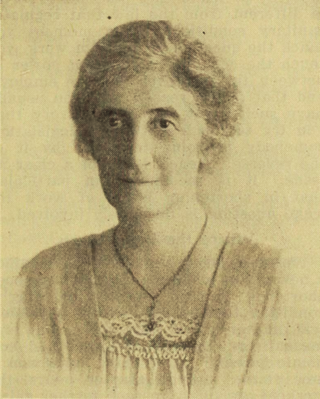
Flora Effie Strout was an American teacher and social reformer. Early on, she taught at Lyman School for Boys in Massachusetts and then at Morgan College, where she also served as principal. As an organizer of the World's Woman's Christian Temperance Union (WCTU), she served as a foreign missionary and temperance movement worker, for three five-year periods in various parts of Asia. She was also involved in the social purity movement and was active in supporting women's suffrage. She wrote occasional articles on temperance issues and the lyrics for Morgan College's school anthem.
References
- ↑ Carroll, Lucy (2008). "The Temperance Movement in India: Politics and Social Reform". Modern Asian Studies. 10 (3): 417. doi:10.1017/S0026749X00013056. ISSN 0026-749X. S2CID 145333549.
- ↑ Tyrrell, Ian (2013). Reforming the World: The Creation of America's Moral Empire. Princeton: Princeton University Press.
- ↑ Osborne, Lori (2017). Waldschmidt-Nelson, Britta; Schuler, Anja (eds.). "The World Woman's Christian Temperance Union: An Early Transnational Women's Organization and its Work in India, 1883-1900" [Forging Bonds Across Borders: Transatlantic Collaborations for Women’s Rights and Social Justice in the Long Nineteenth Century](PDF). Bulletin of the German Historical Institute Washington, Supplement. 13: 129–142. Archived from the original (PDF) on 22 October 2020. Retrieved 20 October 2020.
- 1 2 3 4 5 6 7 Blocker, Jack S.; Fahey, David M.; Tyrrell, Ian R. (2003). Alcohol and Temperance in Modern History: An International Encyclopedia. ABC-CLIO. p. 310. ISBN 9781576078334.
- ↑ "From the Archives (June 7, 1919): Prohibition Movement". The Hindu. 2019-06-07. ISSN 0971-751X . Retrieved 2019-08-12.
- ↑ Union, World's Woman's Christian Temperance (1937). Report of the World's Woman's Christian Temperance Union. WCTU. pp. 79, 108.
- 1 2 Martin, Scott C. (16 December 2014). The SAGE Encyclopedia of Alcohol: Social, Cultural, and Historical Perspectives. SAGE Publications. p. 1911. ISBN 9781483374383.
- ↑ World's Woman's Christian Temperance Union Hearings. United States House Committee on Foreign Affairs. 1936. p. 6. Retrieved 2 July 2018.
- 1 2 Thekaekara, Mari Marcel (25 May 2016). "Why Tamil Nadu's women want alcohol banned". The Guardian . Retrieved 2 July 2018.
- 1 2 3 Anand, Geeta (15 April 2017). "Alcohol Ban Succeeds as Women Warn, 'Behave, or We'll Get Tough'". The New York Times . Retrieved 2 July 2018.
- ↑ Kolås, Åshild (14 June 2016). Women, Peace and Security in Northeast India. Zubaan. p. 163. ISBN 9789385932519.